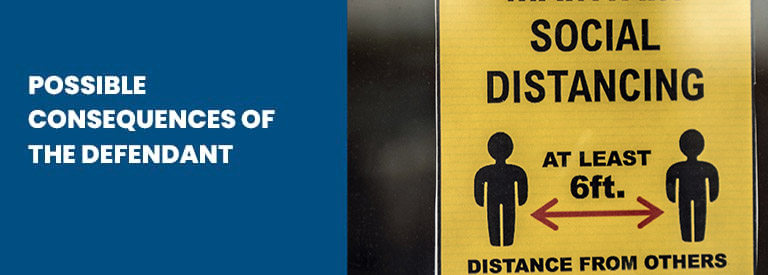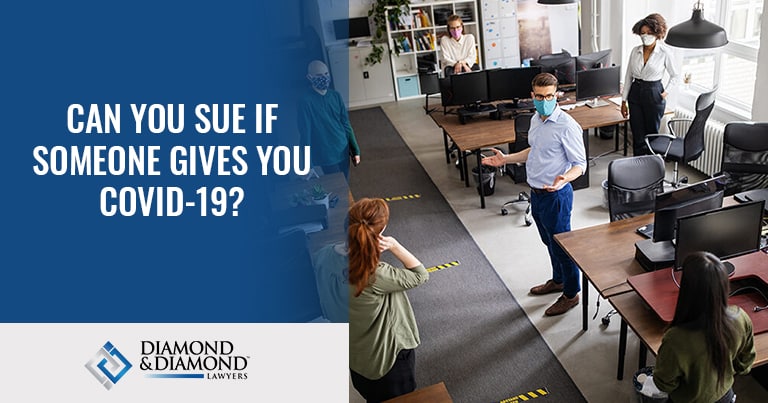The coronavirus disease, commonly known as COVID-19 is a newly discovered coronavirus that threatened the whole world until today.
This virus spreads primarily through droplets of saliva or discharge from the nose when an infected person coughs or sneezes, so everyone must practice respiratory etiquette.
COVID-19 affects everyone in different ways. Most infected people will develop mild to moderate illness and recover without hospitalization.
On average, it takes five to six days from when someone is infected with the virus for symptoms to show; however, it can take up to 14 days.
COVID-19 in Canada
The Public Health Agency of Canada is working with provinces, territories and international partners, including the World Health Organization to actively monitor the situation.
Canada’s Chief Public Health Officer is in close contact with provincial and territorial Chief Medical Officers of Health to ensure that any cases of COVID -19 occuring in Canada continue to be rapidly identified and managed in order to protect the health of the Canadians.
The Public Health Agency of Canada works with the provinces and territories and other partners to monitor and identify variants of concern in Canada.
The count of total cases of COVID-19 in Canada was 1,471 as of March 25, 2021.
Covid-19 is a serious health threat, and the situation is evolving daily. The risk varies between and within communities, but given the number of cases in Canada, the risk to Canadians is considered high.
Neighbour Principle
A person who is either knowingly suffering from COVID-19, or exhibiting symptoms thereof, may be liable in negligence if they breach quarantine and self-isolation restrictions, placing themselves in close proximity to another person without disclosing their illness or symptoms, and transmits the virus to another person.
In Canada, a person can be held liable for their negligent conduct where it causes injury, loss, or damage to another that was reasonably foreseeable.
The Canadian law in negligence has its roots in a 1932 decision from the House of Lords known as Donoghue v Stevenson where Lord Atkin established what has come to be known as the “neighbor principle”. In his decision, Lord Atkin noted that “the rule that you are to love your neighbor becomes in law you must not injure your neighbor.”
This means that a person is required to take reasonable care to avoid acts or omissions that they can foresee would likely injure another person.
Possible Consequences of the Defendant
 As the potential consequences of transmitting COVID-19 by breaching the quarantine requirements, it is possible you may be sued by a person infected by the virus with whom you have come into close physical contact while in breach of quarantine.
As the potential consequences of transmitting COVID-19 by breaching the quarantine requirements, it is possible you may be sued by a person infected by the virus with whom you have come into close physical contact while in breach of quarantine.
If you are found liable for spreading COVID-19, your liability would be very large. A defendant is responsible for all medical costs and income loss. Plus, an additional award will be payable for the harm to the person’s life and for any long-term health effects.
A person who intentionally breaches quarantine by coming into close physical proximity with one of these individuals, thereby transmitting the virus, may find that they do not have coverage under their insurance policy for their negligence.
|
More Info on COVID-19
|
|
Symptoms of COVID 19
|
According to WHO, the most common symptoms are:
- fever.
- dry cough.
- tiredness.
The less common symptoms are:
- aches and pains.
- sore throat.
- diarrhoea.
- conjunctivitis.
- headache.
- loss of taste or smell.
- a rash on skin, or discolouration of fingers or toes.
The serious symptoms are:
- difficulty breathing or shortness of breath.
- chest pain or pressure.
- loss of speech or movement.
|
|
Safety Precautions for COVID 19
|
To prevent infection and to slow transmission of COVID-19, do the following:
- Wash your hands regularly with soap and water, or clean them with alcohol-based hand rub.
- Maintain at least 1 metre distance between you and people coughing or sneezing.
- Avoid touching your face.
- Cover your mouth and nose when coughing or sneezing.
- Stay home if you feel unwell.
- Refrain from smoking and other activities that weaken the lungs.
- Practice physical distancing by avoiding unnecessary travel and staying away from large groups of people.
|
|
Things To Do When You Contract COVID 19
|
Here are few things to keep in mind and do when you contract or suspected to contract COVID 19:
- Monitor your symptoms.
- Seek medical care if your illness worsens.
- Protect others. Separate yourself at home in a specific room away from other people and animals. Use a separate bathroom if possible.
- Avoid sharing household items such as dishes, drinking glasses, cups, utensils, towels or bedding with other people or pets in your home.
- Wear a mask when you have to be in the same room with other people or animals in your home and keep as much distance as possible between yourself and others.
- Wash your hands often with soap and water for at least 20 seconds, especially after blowing your nose, coughing, sneezing, going to the bathroom, and before eating or preparing food.
- Avoid using public transportation. Avoid all public areas.
- Clean all frequently touched surfaces daily.
- Get tested.
|
Know your legal rights if you contract COVID-19 from another person by talking to an Alberta personal injury lawyer from Diamond & Diamond Law.
Did you know?
Wash your hands always. As simple as it is but it is very effective in preventing the spread of COVID-19.
Contact a Personal Injury Lawyer
Being infected with COVID-19 could affect anyone physically, emotionally, psychologically, and most importantly, financially.
Dealing with the person who has caused you to be infected with the deadly virus is another dilemma that you should face.
Contact a personal injury lawyer in Alberta to help you deal with the person who gave you COVID-19.

 As the potential consequences of transmitting COVID-19 by breaching the quarantine requirements, it is possible you may be sued by a person infected by the virus with whom you have come into close physical contact while in breach of quarantine.
As the potential consequences of transmitting COVID-19 by breaching the quarantine requirements, it is possible you may be sued by a person infected by the virus with whom you have come into close physical contact while in breach of quarantine. 